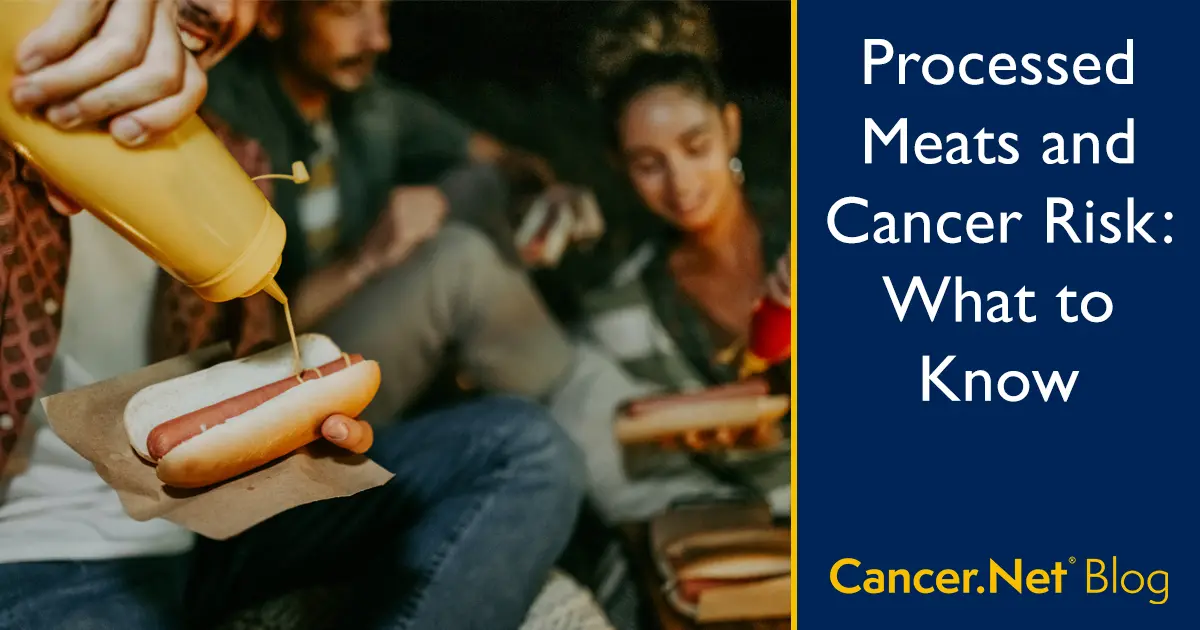Smoked meat is a popular delicacy enjoyed by many people around the world. From smoked sausages to bacon and deli meats, these flavorful options are often a part of our daily meals. However, there has been growing concern about the potential health risks associated with consuming smoked meat, particularly its link to cancer.
What is Unhealthy About Smoked Meat?
Smoked meat is often processed, which means it undergoes curing, smoking, fermenting, or chemical treatment with preservatives to prolong its shelf life. While these processes enhance the taste and texture of the meat, they can also introduce harmful substances that may increase the risk of cancer.
One of the main concerns with smoked meat is the presence of certain chemical byproducts that are formed during its preparation. High heat and smoke used in the smoking process can lead to the formation of compounds such as heterocyclic amines (HCAs) and polycyclic aromatic hydrocarbons (PAHs). These compounds have been extensively studied for their potential carcinogenic properties.
In addition to the formation of HCAs and PAHs, manufacturers often use chemical preservatives like nitrates and nitrites in the processing of smoked meats. These preservatives can react with other substances in the meat to produce cancer-causing compounds called N-nitroso compounds (NOCs).
Are Cured Meats a Cancer Risk?
The World Health Organization (WHO) has classified processed meats, including smoked meats, as Group 1 carcinogens. This classification means that there is sufficient scientific evidence to suggest that consuming processed meats can cause cancer.
Research has shown a link between the consumption of processed meats and an increased risk of colorectal cancer. Studies have also found an association between processed meats and stomach cancer. While the increase in cancer risk may be small, it tends to be higher with higher consumption of processed meats.
It's important to note that individual cancer risk is influenced by various factors, including genetics, lifestyle choices, and overall diet. Smoking tobacco, exposure to asbestos, and consuming processed meats are all classified as Group 1 carcinogens, but their levels of risk may differ.
What Should You Consider When Purchasing Smoked Meats?
When buying smoked meats, it's crucial to consider their nutritional content. Many processed meats are high in saturated fat, salt, and added sugars, which can have negative impacts on your overall health. Opting for leaner cuts of smoked meat and reducing your consumption of processed meats can help improve your diet and reduce your cancer risk.
Labels like nitrate and nitrite-free or uncured may catch your attention, but it's important to be aware that these claims can be misleading. Some products labeled as such still contain naturally occurring nitrates and nitrites from ingredients like celery powder. The USDA is working on establishing new definitions for cured and uncured meats to address this issue.
The current dietary recommendations suggest limiting the consumption of processed meats. The World Cancer Research Fund International recommends eating little to no processed meat, while experts at the National Cancer Institute and the USDA recommend consuming less than 21 grams of processed meat per week.
For cancer survivors, especially those who have had colorectal cancer, the American Cancer Society advises limiting the intake of red and processed meats.
While smoked meats can be delicious, it's important to be mindful of their potential health risks, including their link to cancer. The smoking and processing methods used in preparing these meats can introduce harmful compounds that may increase the risk of certain types of cancer. By choosing leaner cuts, reducing consumption, and incorporating more plant-based foods into your diet, you can minimize your exposure to these risks and promote a healthier lifestyle.
Frequently Asked Questions
- What are processed meats?
- How does consuming processed meats impact cancer risk?
- Why does the link between processed meats and cancer exist?
- What should you consider when purchasing processed meats?
- What are the current dietary recommendations around eating processed meat?
| Frequently Asked Questions | Answers |
|---|---|
| What are processed meats? | Processed meats are meats that are cured, smoked, fermented, or chemically treated with preservatives to help them stay fresh longer. Examples include hot dogs, sausages, bacon, salami, deli meats, and canned meats. |
| How does consuming processed meats impact cancer risk? | Consuming processed meats has been linked to an increased risk of certain types of cancer, such as colorectal and stomach cancer. The chemicals and compounds formed during the processing and cooking of these meats may contribute to this increased risk. |
| Why does the link between processed meats and cancer exist? | The link between processed meats and cancer is believed to be due to the formation of harmful compounds during processing and cooking. High heat, smoke, and the use of preservatives can lead to the production of carcinogenic substances. |
| What should you consider when purchasing processed meats? | When purchasing processed meats, consider their nutritional content. Look for options that are lower in saturated fat, salt, and added sugars. Be cautious of misleading labels that claim to be nitrate and nitrite-free or uncured. |
| What are the current dietary recommendations around eating processed meat? | The World Cancer Research Fund International recommends eating little to no processed meat. Experts suggest consuming less than 21 grams of processed meat per week. Cancer survivors, especially those with colorectal cancer, are advised to limit their intake of red and processed meats. |
It's important to stay informed about the latest research and expert opinions on this topic, as findings may change over time. Consult with your healthcare professional for personalized advice regarding your processed meat intake and its impact on your health.
If you want to know other articles similar to Smoked meat and cancer: understanding the link you can visit the Food category.


Related Articles